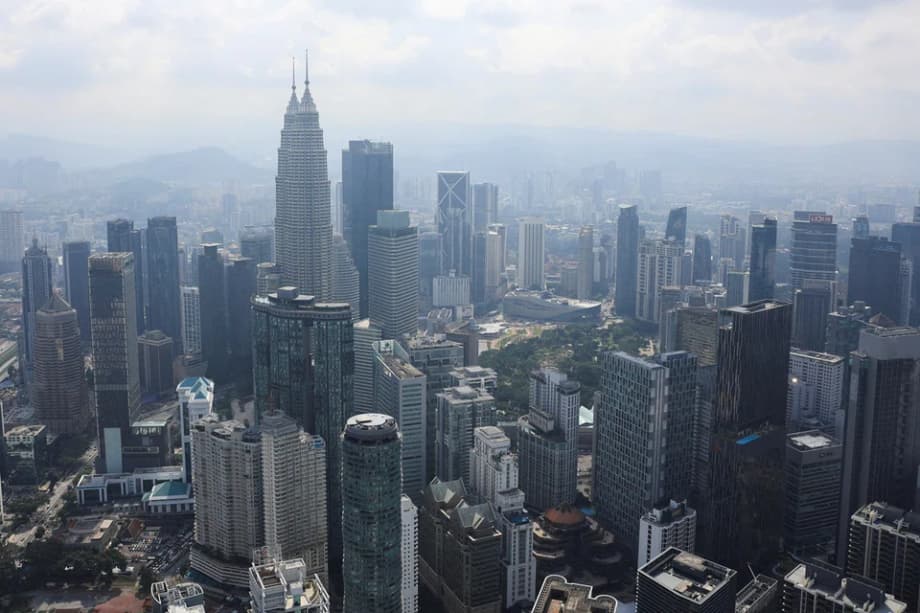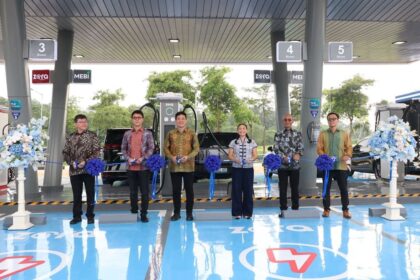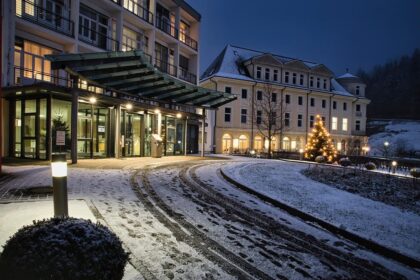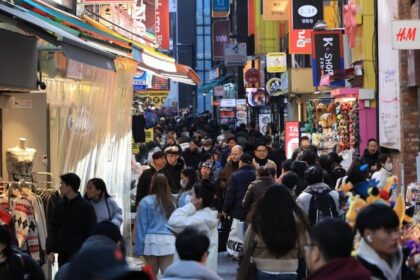Why a sunrise post set off a national debate
A casual social media update by Malaysia’s investment, trade and industry minister, Tengku Zafrul Aziz, did more than cheer on a morning run. His note about lacing up in Kota Kinabalu before an 8.30 am event tapped into a long running conversation in the country. Many Malaysians ask whether the clocks in the peninsula sit an hour ahead of where the sun says they should be. The post became a lightning rod for calls to revisit how the nation keeps time.
- Why a sunrise post set off a national debate
- How Malaysia ended up an hour ahead
- The health argument, explained
- What change advocates want
- Why the government prefers the status quo
- Would turning back the clock improve health
- Regional context and the ASEAN idea
- Practical options short of a time change
- What to Know
Peninsular Malaysia and Singapore lie on roughly the same longitude as Bangkok and Jakarta, yet they follow GMT+8. Thailand and western Indonesia use GMT+7. Manila, much farther to the east, also uses GMT+8. This choice pushes sunrise in Kuala Lumpur to around 7 am for much of the year. In Jakarta the sun often appears near 5.30 am, and in Manila near 6 am. In East Malaysia, the Borneo states of Sabah and Sarawak share the same time as the peninsula, but the sun rises earlier, usually between 6 and 6.30 am. For many on the west coast of the peninsula, the workday starts at 9 am after only two hours of daylight. School often begins at 7.30 am, barely half an hour after first light.
At the heart of the discussion is the body’s internal clock. A circadian rhythm is a daily cycle that cues sleep and wakefulness, body temperature, digestion and hormone release. Light in the morning helps the brain set that clock. When sunrise and social schedules move out of sync, people can feel groggy at the start of the day and find it harder to fall asleep at night. That misalignment has a name in sleep science, social jetlag, because it mimics the feeling of flying across time zones without leaving home.
How Malaysia ended up an hour ahead
Time in peninsular Malaysia was not always what it is today. After World War II, clocks in the peninsula were set to UTC+7:30. On Jan 1, 1982, Malaysia advanced the peninsula’s clocks by 30 minutes to match Sabah and Sarawak at GMT+8. The move created one national time from Perlis to Tawau. Singapore followed soon after, citing close economic and social ties and the wish to avoid confusion for travelers and cross border business.
That 1982 decision also aligned Malaysia and Singapore with regional financial hubs that operate on GMT+8, including Hong Kong and large parts of China. Banks, airlines, shippers and broadcasters built schedules around that standard. Four decades later, daily routines, software systems and cross border meetings still run smoothly because the clocks do. Any switch would ripple through these layers.
The health argument, explained
Supporters of a change say the current setup keeps many Malaysians waking and heading to school or work in relative darkness, then compresses morning daylight. They point to the role of morning light in anchoring circadian rhythms. When sunrise shifts late on the clock, people may stay up later, sleep a bit less and get less early light. Large population studies in other countries have found that people living near the western edge of a time zone, where the sun rises and sets later by the clock, tend to sleep less on workdays and show higher rates of certain health risks. The effects are modest at the individual level but can add up across millions of people.
Morning light suppresses melatonin, the hormone that signals it is time to sleep, and boosts alertness. More daylight early can make it easier to wake, exercise or commute. Critics of GMT+8 for the peninsula argue that realigning clocks with the sun would guard against chronic sleep debt and might help with weight control and metabolic health.
Health professionals caution against seeing the clock as a cure all. A dietitian in Malaysia’s health service, Nurul ‘Aqilah Hasan Ashaari, has pointed out that neighboring Brunei sits in what many consider the right time zone for its longitude but still faces high rates of diabetes. Lifestyle patterns, she said, often matter more. Sleep timing, work hours, long commutes, screen use late at night and heavy evening meals can overwhelm the signal of sunrise.
Survey data support that view. The 2024 National Health and Morbidity Survey reported that about a third of Malaysians and two fifths of youths have late, heavy meals at least once a week. Eating large meals late can disrupt sleep and put strain on blood sugar control. Sedentary time, stress and convenience foods add to the mix. Moving the clock by an hour would not change these habits by itself.
What change advocates want
The latest debate picked up after Tengku Zafrul shared his Kota Kinabalu run, because the contrast with the peninsula felt tangible. In Sabah, he could get moving at first light and still make a morning event. In Kuala Lumpur, critics say the later sunrise narrows the window to walk a child to school, squeeze in a jog or enjoy a calm breakfast outdoors before the workday.
Those who want a reset usually call for peninsular Malaysia to shift to GMT+7, matching Thailand and western Indonesia. A small but motivated community has highlighted potential benefits, from better sleep to more outdoor time before work. Calls also pop up after school timetable announcements or during Ramadan, when pre dawn routines are common.
Social media captured the mood after the minister’s post. One user’s rallying cry stood out and circulated widely among supporters of a rollback.
Introducing a social media user who commented on the minister’s post, reflecting a grassroots view in plain language.
BRING BACK GMT +7 to Semenanjung!!
Many travelers notice the difference when they fly east to Sabah or Sarawak and wake with more daylight. Returning to the peninsula can feel like a small step west. Those perceptions give the campaign an emotional edge, even if the science remains complex.
Why the government prefers the status quo
Lawmakers considered the question again in March 2024. The government acknowledged public interest but said a change would bring broad economic consequences. Officials signaled they are not inclined to reverse the 1981 decision. The emphasis was on the cost of updating systems, the need to coordinate with East Malaysia and Singapore and the risk of adding friction to business and travel.
That caution reflects how many parts of modern life rely on a stable clock. Airlines plan months ahead for take off and landing slots. Rail and bus timetables would need redesign. Banks and stock exchanges have tight links across Asia, and much of the region settles trades and payments on GMT+8. Schools and public agencies would rewrite schedules. Software platforms that time stamp transactions or shift workers across regions would need updates and testing. None of this is impossible, but it would take time and money.
Another consideration is national cohesion. A switch only in the peninsula would create a one hour difference with Sabah and Sarawak. Malaysia lived with split time before 1982, yet a new split would still require fresh coordination for meetings, court hearings and nationwide broadcasts. A switch in East Malaysia as well would alter sunrise and sunset there, raising a different set of concerns.
Would turning back the clock improve health
Sleep researchers often stress two ideas at once. Morning light helps set the clock in the brain, and social rhythms like school start times and work shifts can either help or hinder healthy sleep. A one hour move closer to solar time would likely make it easier for some Malaysians to fall asleep earlier and wake with more light. That change might be most noticeable in the western peninsula, which sits farthest from the sun under GMT+8. The flip side is that later sunsets by the clock could encourage later dinners and screen time in some families, which would undercut any gains.
Comparisons to Brunei, Singapore or Indonesia can be informative but imperfect. Health outcomes vary with income, food culture, urban design, stress and healthcare access. Brunei’s experience shows that aligning clocks with longitude does not guarantee low diabetes rates. Singapore’s high pressure work culture and long hours are often blamed for short sleep. Indonesia spans three time standards and shows wide diversity in sleep and diet. Any change in Malaysia would play out inside these broader forces.
There are also daily trade offs. Earlier daylight helps outdoor workers, runners and parents on school duty. Later daylight in the evening aligns with leisure and retail. Many businesses prefer synchronized hours with markets in Hong Kong and Shanghai. The debate often turns on which priority carries more weight.
Regional context and the ASEAN idea
Ideas for harmonizing time across Southeast Asia surface from time to time. A common time zone for ASEAN capitals has been floated by regional leaders in past years. Supporters say shared time would smooth cross border trade, make airline coordination easier and simplify stock market operations. Singapore has expressed a preference for GMT+8, which already covers much of East and parts of Southeast Asia.
Turning that vision into reality would be challenging. Indonesia spans GMT+7 to GMT+9, and a proposal to adopt a single national time did not move ahead. Thailand examined a shift to GMT+8 decades ago and decided against it. Any joint move would bring earlier sunrise for some countries and later sunrise for others. The diversity of geography and lifestyles across the region makes a single solution hard to settle.
Practical options short of a time change
Malaysia could capture some of the benefits that change advocates want without touching the national clock. Several policies are within reach and have been tried elsewhere.
Revisit school start times
Evidence from many countries shows that teenagers sleep longer and perform better in class when schools start later in the morning. A modest shift for secondary schools, even by 30 to 60 minutes, can improve attendance, mood and test scores. Primary schools could keep earlier starts where communities find them convenient, while older students begin later.
Flexible work and morning windows
Public agencies and large employers can offer core hours with flexibility at the edges. Allowing a 7.30 am to 9.30 am arrival window gives families room to pick a schedule that suits daylight and commutes. Civil service policies often set the tone for private employers.
Make mornings inviting
Local councils can encourage early outdoor time by opening parks sooner, programming free exercise classes at first light and improving lighting for safe commutes on foot and by bicycle. Small steps shift habits over time.
Target late dinners and heavy suppers
Public health campaigns can focus on meal timing, portion size and late night snacking. The national survey data on heavy late meals point to a clear target. Messaging around earlier, lighter dinners and cutting sugary drinks late at night could move the needle on sleep and metabolic health more directly than a clock change.
Track outcomes and share data
Better sleep survey data by region and age would help test whether morning light access varies widely across states and how that relates to health. Universities and the health ministry can partner to monitor changes when schools or employers adjust schedules. Clear metrics guide smarter choices.
What to Know
- A minister’s sunrise post in Sabah revived a longstanding debate over whether peninsular Malaysia sits in the wrong time zone for its longitude.
- The peninsula used UTC+7:30 after the war, then moved ahead by 30 minutes in 1982 to unify with Sabah and Sarawak at GMT+8, with Singapore following soon after.
- Under GMT+8, Kuala Lumpur’s sunrise often arrives near 7 am. Sabah and Sarawak usually see first light between 6 and 6.30 am.
- Advocates say later sunrises limit morning light and can disrupt circadian rhythms. They push for a shift to GMT+7 to match Thailand and western Indonesia.
- Medical voices argue that sleep timing, work hours and late heavy meals likely have a bigger effect on health than the time zone alone.
- The 2024 National Health and Morbidity Survey found frequent late, heavy meals among about a third of adults and two fifths of youths.
- The government told Parliament in March 2024 that a change could affect the economy and signaled no plan to reverse the 1981 decision.
- Any switch would require updates to transport schedules, financial systems and cross border coordination, including ties with Singapore.
- Regional leaders have discussed a common ASEAN time in past years, but diversity across countries makes a single standard difficult to adopt.
- Policy steps like later school starts, flexible work hours and campaigns on meal timing can deliver health gains without changing the national clock.












